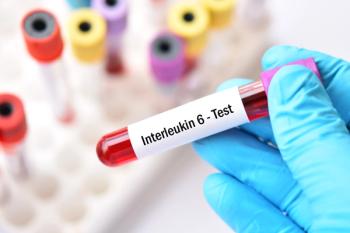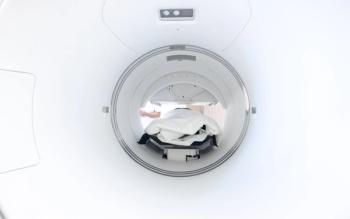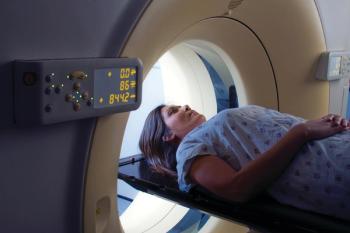
Researchers add to previous studies by refuting association between vaccines and MS flare-ups.

Researchers add to previous studies by refuting association between vaccines and MS flare-ups.

A nationwide study conducted in Denmark found an association between dementia incidence and previous exposure to infection, but the potential impacts of systemic inflammation or autoimmune diseases on dementia incidence were not as clear.

Panelists from the American College of Surgeons (ACS) and the American Urological Association spread awareness about the realities of prostate cancer, the importance of screening, and ways for men to approach their health concerns and prevention.

In a longitudinal case study, researchers found that higher inflammation levels may predict poor outcomes following bariatric surgery.

A cross-sectional study suggests that mild cognitive impairment is associated with pulmonary arterial hypertension (PAH).

In an exploratory analysis, Hispanic men with primary and metastatic prostate cancer exhibited higher frequencies of certain altered genes compared to non-Hispanic men.

Adverse effects associated with glucocorticoid use among patients with rheumatoid arthritis may not be as burdensome as previously indicated.

Measuring biochemical recurrence (BCR) as a surrogate marker produces unreliable results as a primary end point for overall survival of patients with localized prostate cancer, a study found.

Researchers analyzed patient and clinician perspectives on neuropsychiatric (NP) symptom occurrence and found discrepancies potentially impacting patient care.

The FDA has approved an expanded indication for luspatercept (Reblozyl) for the first-line treatment of anemia in patients with low-risk MDS who may require blood transfusions.

Combination endoscopic sinus surgery (ESS) and biological therapy significantly decreased polyp burden in refractory chronic rhinosinusitis with nasal polyposis (CRSwNP) compared with biologic therapy alone

MRI screening shows promise for predicting clinically significant prostate cancer (PCa) early on and independently of prostate-specific antigen (PSA) assessment.

Researchers investigated methods for measuring prior exposure in patients with suspected, undocumented COVID-19 infection to give better access to care and counsel.

Through a series of regression analyses, researchers projected the ever-increasing global burden of osteoarthritis (OA) until 2050.

Researchers determined that the Huber et al. criteria regarding prostate-specific antigen (PSA) levels may more accurately predict the need for additional treatment or the possibility of treatment failure compared with other PSA-based definitions.

In this multicenter cohort study, COVID-19 vaccination at any gestational stage improved antibody responses for pregnant individuals and their infants. Booster vaccine recipients demonstrated increased benefits in these effects at delivery.

Researchers analyzed numerous biomarkers in patients at risk for inflammatory arthritis to develop measurable scores indicating a patient's vulnerability to disease progression.

New research suggests that measuring the inflammatory marker myeloperoxidase (MPO) may be an effective strategy for the prediction of patients' risk of mortality in a myriad of cardiac—and potentially non-cardiac—diseases.

New biomarker technology shows promising results for predicting the prognosis of patients with prostate cancer after radical prostatectomy.

Researchers using the Big Five Inventory-2 Short Form questionnaire in a large-scale survey have associated certain personality traits with the openness to accept or refuse the COVID-19 vaccine.

Polymyalgia rheumatica (PMR) is an inflammatory disease often misdiagnosed as certain cancers, among other diseases. Researchers have recently made progress to better diagnose PMR using a standard uptake value index based on fluorodeoxyglucose with positron-emission tomography/computed tomography.

The body of research on nirmatrelvir-ritonavir demonstrates a plethora of benefits in the treatment of COVID-19, and authors of a recent study identified more advantages to administering the treatment to patients with COVID-19.

A recent study suggests that a lack of equitable access to care contributes to known disparities in outcomes between Black and White patients with advanced prostate cancer.

Researchers linking uric acid (UA) levels to the aggressiveness and progression of prostate cancer believe these findings can be used to study UA influence on prostate cancer–related mortality risk.

Researchers seeking answers regarding the most beneficial duration of immune checkpoint inhibitor–based therapy for non–small cell lung cancer (NSCLC) found no significant impact of indefinite-duration treatment on patient survival.

After the COVID-19 vaccine was released, disparities in COVID-19 incidence shrunk. However, although efforts were made to increase access to the COVID-19 vaccine in low-income areas, discrepancies in overall vaccination coverage persisted between higher- and lower-income communities.

Following prostatectomy in patients with recurrent prostate cancer, researchers analyzed post–salvage radiotherapy prostate-specific antigen (PSA) values and the percentages of PSA decline to anticipate patient survival rates.

Forms of localized treatment have potential to positively impact the survival rate and prognosis of men diagnosed with certain forms of metastatic prostate cancer.

Patient-centered care (PCC) is a major part of a patient’s daily life that addresses their psychological needs, among other needs and preferences. Quality PCC has been recognized as important in clinical practice; however, implementation rates remain comparatively low.

Most prostate cancer survivors surveyed reported feeling that telehealth cannot fully replace in-person visits, with perceptions varying significantly based on education level.

259 Prospect Plains Rd, Bldg H
Cranbury, NJ 08512
© 2025 MJH Life Sciences®
All rights reserved.
